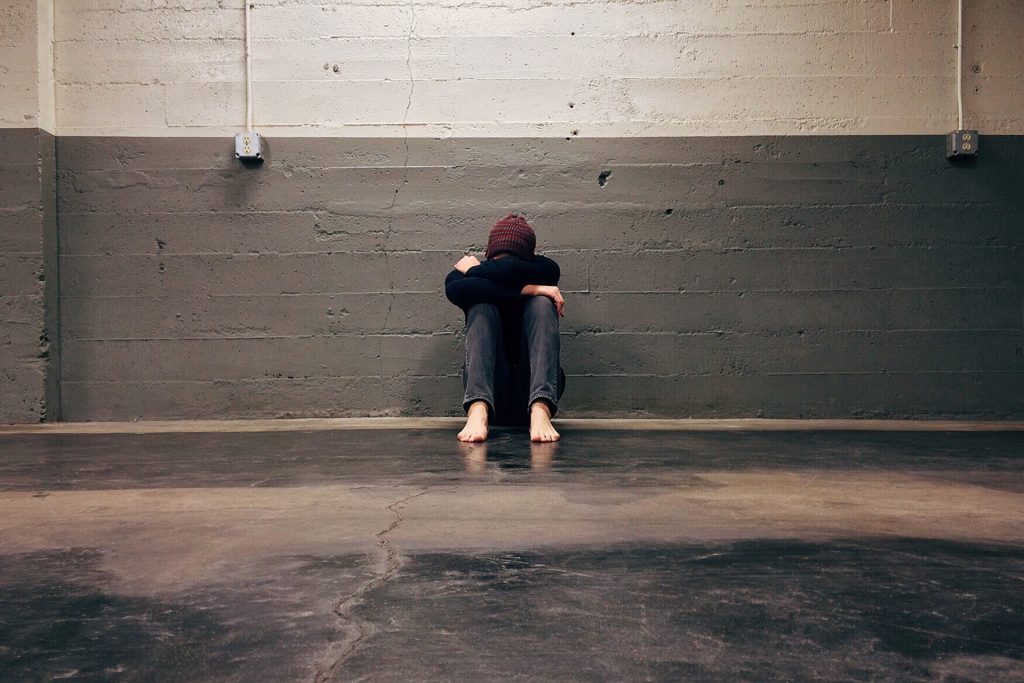Why has the rug been pulled from under my feet?
‘It’s complicated’. Research shows that the causes of homelessness are complex, with no single ‘trigger’ that is either ‘necessary’ or ‘sufficient’ to occur. But there are trends.
‘Push’ and ‘pull’. The homelessness charity, Shelter, stipulates that the reasons young people leave their home are crucial to understanding how some become homeless. Whilst ‘pull’ factors, such as leaving for uni, training or work are mostly positive for the individual, ‘push’ factors can be very negative for young people and can see them forced from their families in unplanned and often permanent ways. In fact, 80% of the young people assisted by the UK’s leading charity for youth homelessness, Centrepoint, have left home due to ‘push’ factors.
Triggers. So what are these ‘push’ factors? Researchers from the respected Joseph Rowntree Foundationhave found that young people’s risk of homelessness is increased if they experience disruption or trauma during childhood and/or if they are from poor socio-economic backgrounds. They find that the most common ‘trigger’ for youth homelessness is relationship breakdown, usually with regards to their parents or step-parents. This is often the consequence of long-term conflict within the home. This often involves violence. This sometimes involves sexual abuse. However, sometimes the reasons can be somewhat “simpler”, such as there being a lack of space, or, poverty. Furthermore, young people over 16 years of age beware: you can be thrown out by your parents at any time because you are merely ‘licensees’ in the family home in the eyes of the law.
The web. One’s risk of homelessness is affected by individual, interpersonal and structural factors. Are you a risk-taker? Were you born into poverty? Are you unemployed? How’s the housing market looking these days? Social relationships are the main buffer to homelessness – your family or friends may give you a couch to rest your head on in a crisis. However, the main proximate cause of homelessness, as recorded by local authorities, is family and friends no longer being able to provide accommodation. This simply means that your saviour’s couch can’t support you forever. Ultimately, the factors interrelate and this cocktail, this web, changes over time.
Consequences. According to the Joseph Rowntree Foundation, young homeless people have significantly worse health than other people their age. Homelessness compounds a number of the problems they face, as is particularly evident with mental health problems and/or substance misuse. It can trigger the onset of these problems or exacerbate them if they are already existing. A significant minority of young homeless people have multiple needs. However, we do not yet know if the prevalence of complex needs is on the increase or whether agencies are just better at identifying a range of needs nowadays. There is particularly robust evidence of a strong association between homelessness and isolation from education, employment or training. Hear for yourself.
Real life examples from Llamau:
Sara has been living in a home where there are constant arguments. She can’t talk to her parents and copes by keeping her feelings to herself. Indeed, Llamau works with a lot of young people who can’t talk to their parents without arguing, and who have left home or are on the verge of leaving because of it. For Sara, life at home has become as difficult as it is dangerous. She and her mother are both suffering domestic abuse at the hands of her father. Hear her speak here.
Rhys was brought down to Wales from Scotland by his mum. Life in Scotland was not good, with constant rows and no money. They moved in with Rhys’s auntie in Newport initially, however after three months, Rhys’ mum decided to return to Scotland, leaving Rhys alone. Although he was living with his auntie, Rhys hadn’t made many friends. He enrolled on an IT course and things were starting to get better for him. But a few weeks later his auntie asked him to leave. Rhys went to the Local Authority but he did not meet the criteria for “priority need” and they were therefore unable to help him. But, concerned for his safety, they called Llamau. Read his story here.
Poem originally published by TomW on 09/04/14 for Youth Homelessness Matters Day. Republished as part of our Homelessness Series for December 2016.
You can find out more information, as well as statistics on homelessness, by checking out their rather impressive website.
Sub-editor’s note: This December, share your advice, experiences, news, creative writing… whatever… about homelessness and TheSprout will give you Time Credits to spend in Cardiff! Submit here.
Related:
http://thesprout.co.uk/blog/2016/12/02/youthhomelessness-poem-spare-some-change/
Get involved:
Want to reach thousands of young Cardiffians? Submit your news here or register to become a contributor.
*Want to become a reviewer? Join the Sprout Editorial Group on Facebook or email tom@thesprout.co.uk.
Click here for the next Sprout Editorial Group meeting.
Comment below:
It’s free and quick to comment below but we recommend signing up with your email or as a guest to keep usernames Sprouty and anonymous (and never post personal details!).
If you want more info on staying safe online, check out our online safety section.

